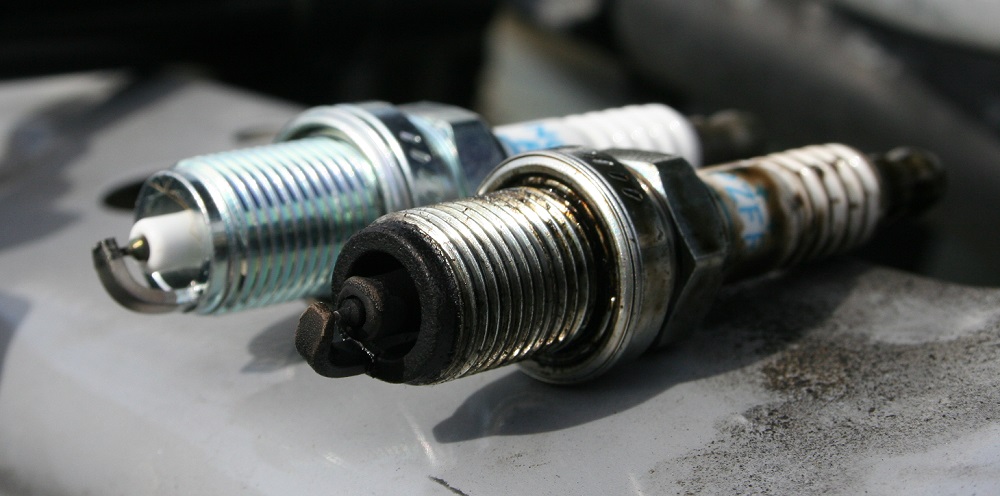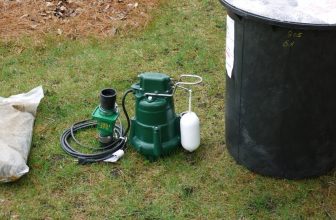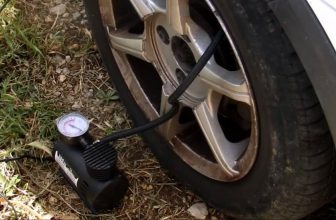Despite their diminutive form, spark plugs are among the essential components of any modern vehicle. These plugs don’t just ensure that your car runs smoothly but also make so that you won’t have any problems with the ignition long-term, not even in cold weather. While spark plugs have indeed changed in shape ever so slightly over time, their intended purpose has remained pretty much the same. That said, finding a good one can be tricky, mostly because of how inexpensive they are, which is also the reason why so many sub-par models make their way onto the market. To help you through, we put together a list of the ten best spark plugs money can buy.
10. Autolite XP5224
The Autolite Xtreme Performance 5224 Iridium Spark Plug has a technologically improved construction when compared to other spark plugs, thanks to an iridium-enhanced .6mm fine-wire design and unique platinum side-wire innovation, ensuring an improved durability plus a more effective ignition and consistently impressive performance. It is a premium-grade spark plug that also boasts a sturdy nickel-coated shell and an iridium-enhanced center electrode for superior efficiency, reliability.
9. Autolite APP104
With a full, functional platinum tip, the Autolite APP104 spark plug provides virtually zero gap erosion, a great highlight when factoring how frequent such a risk can be. The plug also supports optimized engine performance by ensuring efficient fuel consumption. Moreover, it has a necked-down center electrode whose design supports quicker and cleaner ignition and combustion yet using less voltage.
8. NGK (4548) CR9EK
Featuring a quality copper core that provides a faster, greater spark and superior heat conductivity and dissipation, this spark plug model stands apart not just as one among the most effective models yet also among the most affordable. Its relatively long insulator nose ensures no fouling, while corrugated ribs integrated on the insulator averts flashovers. Again, it has dual ground electrodes which offer a greater spark consistency than what other spark plugs in its price range may.
7. DENSO # 3297 – SK20R11
Another one by DENSO, the SK20R11 has a proprietary iridium alloy build that helps provide a more reliable spark and heat conductivity. It delivers this by utilizing an innovative 360-degree laser welding process which is not like the other plug models out there when it comes to conductivity and consistency. Moreover, this particular plug is about 6-7 times harder and nearly 8 times sturdier than traditional platinum spark plugs, delivering even greater durability.
6. NGK (6953) BKR5E-11
With a design that supports a lot wider heat range operation than most other plugs, this BKR5E-11 spark plug stands apart as one of the few models that offer resistance to carbon build-ups and pre-ignition. Its high-quality alumina ceramics ensure greater heat transfer plus electrical insulation, while also eliminating possible combustion gas leakage. Moreover, trivalent metal plating provides commendable anti-seizing, anti-corrosion properties.
5. Bosch 4417 Platinum+4
The Platinum+4 spark plug by the famous Bosch features a uniquely innovative firing technology, combining the benefits of surface air gap function, nickel-yttrium 4 ground electrodes, and a functional heat-fused center electrode integrating pure platinum to ensure optimal engine performance, quicker and smoother acceleration, and peak fuel efficiency.
4. ACDelco 41-993 Professional
It is its unique, assured engine idle stability, as well as a much smoother overall performance, that makes this spark plug stand apart. All this is ensured by its small but highly efficient electrode that delivers a quite reliable cold-starting and also faster acceleration while not compromising the structural decency of the plug in any way. It further boasts a 1-piece suppressor for blocking radio frequencies which would otherwise inhibit your vehicle’s electronics.
3. Denso (3297) SK20R11
With an enduring iridium construction that boasts a really high melting point, the SK20R11 spark plug is regarded as among the most durable models today. It, therefore, offers much better fuel efficiency and acceleration than most other models in the fray. Moreover, it ensures a stable combustion during engine idling, a wonderful feature for a spark plug of the day. It further has a design that extends its durability to a remarkable value.
2. Denso (4504) PK20TT
Another great option, this Denso’s Platinum PK20TT Spark Plug has a twin-tip design featuring an 11mm quality platinum center electrode with 11mm premium titanium improved ground electrode. Including a purified alumina-powder insulator, this great plug delivers exemplary dielectric power and thermal conductivity, enabling it to withstand constant use. As such, it ensures higher fuel efficiency, quicker start times and better acceleration.
1. NGK (5464) BKR5EIX-11
Created for consistent, peak performance, this is doubtless one among the most dependable spark plugs available on the market today. It has among other features a much longer insulator nose relative to most other models, thus preventing fouling. Again, on the insulator are corrugated ribs for preventing flashovers, while a triple gasket seal helps in eliminating combustion gas leakage maximally. Moreover, it has trivalent metal plating for ensuring great anti-corrosion, anti-seizing qualities, recommending it as one of the very best spark plugs out there.
The Ultimate Spark Plug Guide
Although we’ve covered some of the best spark plug models currently available, that may not be good enough for most home mechanics. That’s because when you’re replacing your spark plugs, there’s a lot more to consider other than the quality of the plugs themselves. A number of other things have to be taken into account to ensure that the plugs you buy will not only work for your specific vehicle but will also deliver the results that you expect them to deliver.
Keeping that firmly in mind, we’ve decided to go ahead an write this authoritative article on how to purchase your next set of spark plugs. In this guide, we’re going to cover some of the basics that people should know before they purchase plugs and then we’ll end the article with a few tips and tricks. Sound good? Well, if it does, then let’s jump right into things and get started.
Determining If Your Spark Plugs Are Still Good
The first thing that has to be done is to determine if your spark plugs need to be replaced in the first place. Even though it’s generally a good idea to replace your spark plugs every 30,000 miles or so, sometimes you may need to replace your spark plugs sooner. And that can be determined by pulling the spark plug and taking a close look at it. After all, it’s overall condition will determine not only if the spark plug needs to be replaced, but it may also hint at problems that your vehicle may be having. Let’s examine some of the more common spark plug conditions and what they mean, shall we?
Normal Spark Plugs
It’s normal for a spark plug to have a tan, gray or brownish deposit on the side of its electrode, so if it does and doesn’t show any further damage, then most likely it’s fine.
Oily Spark Plugs
If the spark plug has oil on its insulator tip or its electrodes, then that’s indicative of a more serious problem with your engine. Usually, this means that the valve guides are worn, but other conditions can cause it as well. Therefore, it’s important to have the vehicle checked thoroughly by a mechanic and once the engine issue has been resolved, then have the spark plugs replaced as well.
Fouled Spark Plugs
If you pull your spark plugs and notice that they are black with dry soot, then that indicates that your plug is carbon fouled. Although a number of conditions can cause this problem, it’s usually the result of an air filter that’s been allowed to become dirty, because you’re leaving your vehicle for long periods of time or because the mixture of your air and fuel mixture is too rich. However, it can also be caused by driving at lower speeds for extended periods of time or for other circumstances, so you may want to consult a mechanic. You may also want to switch to a spark plug with a higher rating so that in the future it’s less likely to become fouled.
Burned Spark Plugs
If your plugs show signs of burning, including white deposits forming around the plug, the electrode partially melting or blisters forming on the tip of the insulator, then you may have one of several different problems with your engine. For example, your ignition timing may be off, your vehicle may be overheating, or you may have a spark plug that isn’t rated for your engine. This problem can also be caused by incorrectly seated spark plugs, too. If your plugs are burnt, then they should immediately be replaced, and the underlying engine problem remedied.
Wet Spark Plugs
If you pull your spark plugs and they’re wet, then most likely your engine has been flooded when it was started. Flooding occurs when a person attempts to fire up and engine, and it turns over several times without starting up. Generally speaking, unless there’s further damage to the plugs, then all that needs to be done is for them to be cleaned, dried off and then reinstalled.
Worn Spark Plugs
If your plugs are showing signs of wear, then it’s time to replace them. This is true even if you haven’t yet reached the manufacturer’s recommended replacement date. Replacing worn spark plugs will result in better gas mileage and will ensure that the plug doesn’t fail in such a way that it damages the engine.

Choosing A Spark Plug Type
Although you should always purchase the spark plugs that are designed to go with the make and model of your particular vehicle, in some cases consumers have a choice to choose from one of different spark plug types. Below are some of the more common types currently available and a brief summary of their characteristics.
Standard Spark Plugs
These plugs come with a variety of different monikers, but they’re all pretty much the same. They’re made using a copper inner core and a nickel alloy electrode coating. These plugs are usually inexpensive, but they also tend to wear out sooner than other types of plugs. However, some high-performance engines or older engines require these types of plugs, so if your owner manual says use standard, copper, or copper/nickel plugs, then stick with that recommendation to ensure optimal performance.
Platinum Spark Plugs
Platinum plugs, otherwise known as single platinum plugs, are made with a platinum coating. This coating is harder than other metals, so it typically holds up better than copper or nickel plugs, tends to do. Usually, these plugs only have to be replaced every 100,000 miles or so. These plugs are also more expensive than copper plugs. However, if your auto’s manual states that you should use platinum plugs, then that’s what you should do. After all, placing copper plugs in an engine that requires platinum plugs will usually result in terrible performance degradation.
Double Platinum Spark Plugs
The main difference between single platinum and a double platinum plug is that single platinum, only has plating on the center electrode, and double platinum has plating on both the center and ground electrodes. As you probably guessed, this means that the plug is more expensive than single platinum ones. However, they also usually offer better performance and last a very, very long time.
Iridium Spark Plugs
These spark plugs are designed to deliver exceptional performance and to provide the engine with a more complete combustion cycle. These plugs tend to last longer than copper plugs, but don’t have as long as a lifespan of double platinum plugs. These plugs are the most expensive of all of the different plug types, and their fine wire centers do an exceptional job of conducting a spark. That makes them the choice of many consumers looking to get the most out of their vehicles.















